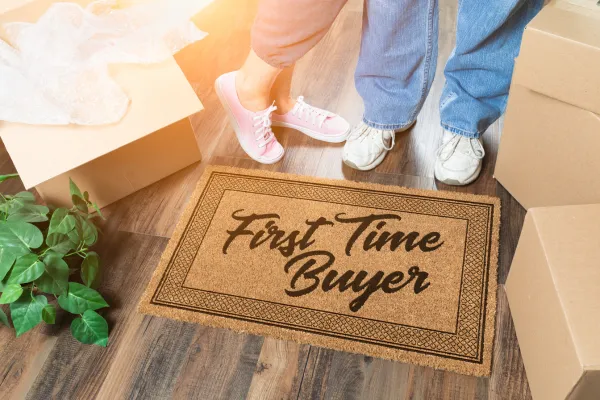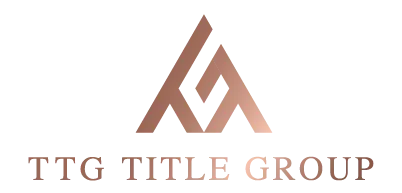The Property Pulse Blog
Welcome to "The Property Perspective," where expert insights meet real estate innovation, empowering you to navigate the market with confidence.

Government Programs That Help First-Time Homebuyers
Buying a home for the first time can be an exciting yet overwhelming experience. With rising home prices and strict mortgage requirements, many first-time buyers struggle to afford a down payment or qualify for a loan. Fortunately, various government programs are available to provide financial assistance and make homeownership more accessible. If you're a first-time homebuyer, understanding these programs can help you save money and achieve your dream of owning a home.
1. FHA Loans (Federal Housing Administration Loans)
FHA loans are one of the most popular options for first-time homebuyers. These government-backed loans require a lower down payment—typically as low as 3.5%—and have more lenient credit score requirements than conventional loans. FHA loans are ideal for buyers who may not have a large savings fund or a high credit score. However, they do require mortgage insurance, which adds to the overall cost.
2. USDA Loans (United States Department of Agriculture Loans)
If you're looking to buy a home in a rural or suburban area, a USDA loan could be a great option. These loans offer 100% financing, meaning no down payment is required. Additionally, they come with lower interest rates and reduced mortgage insurance costs. To qualify, buyers must meet income eligibility requirements and purchase a home in an approved rural location.
3. VA Loans (Veterans Affairs Loans)
VA loans are designed for military service members, veterans, and eligible spouses. They offer significant benefits, including zero down payment, no private mortgage insurance (PMI), and competitive interest rates. VA loans also have more flexible credit and income requirements, making them an excellent option for those who have served in the military.
4. Fannie Mae and Freddie Mac Loan Programs
Fannie Mae’s HomeReady® and Freddie Mac’s Home Possible® programs provide low down payment options (as low as 3%) for first-time buyers. These loans are tailored for borrowers with moderate incomes and allow for co-borrowers who do not reside in the home. Additionally, they offer reduced mortgage insurance costs, making homeownership more affordable.
5. State and Local First-Time Homebuyer Programs
Many state and local governments offer first-time homebuyer assistance programs. These programs vary by location but often include down payment assistance, low-interest loans, and grants. Some states even offer tax credits to help reduce the overall cost of homeownership. Checking with your local housing authority or state government can provide valuable insights into what programs are available in your area.
6. HUD Good Neighbor Next Door Program
The HUD Good Neighbor Next Door program is specifically designed for teachers, law enforcement officers, firefighters, and emergency medical technicians. This program offers a 50% discount on eligible homes located in designated revitalization areas. In exchange, participants must commit to living in the home for at least three years. This is a great way for community service workers to achieve homeownership at a fraction of the cost.
7. Homeownership Vouchers (Section 8 Housing Choice Voucher Program)
For low-income individuals and families, the HUD Housing Choice Voucher Program (commonly known as Section 8) provides assistance in purchasing a home instead of renting. Eligible participants receive financial aid that helps cover mortgage payments, making homeownership possible for those who may not otherwise afford it.
8. Down Payment Assistance Programs (DPA)
Down payment assistance programs, often run by state and local governments or nonprofit organizations, provide grants or low-interest loans to help first-time homebuyers cover their down payment and closing costs. Some programs offer forgivable loans, meaning the borrower does not have to repay the assistance if they meet specific conditions, such as living in the home for a certain number of years.
9. First-Time Homebuyer Tax Credit (Potential Future Program)
Although the first-time homebuyer tax credit from 2008 is no longer available, there have been discussions about reinstating a similar program in the future. If approved, this would provide tax credits to eligible first-time buyers, reducing their overall tax liability and making homeownership more affordable.
Final Thoughts
Navigating the home-buying process can be complex, but government programs provide valuable assistance to make homeownership more attainable. Whether you need help with a down payment, a lower interest rate, or relaxed credit requirements, there are multiple options available to support first-time homebuyers. Before purchasing a home, research which programs you qualify for and consult with a mortgage lender or housing counselor to explore the best options for your financial situation. Taking advantage of these resources can save you thousands of dollars and help you achieve your homeownership dreams.

Secure & Prestigious Closing Experiences for Real Estate Professionals and Property Owners.
Contact Us
Address:
700 Pennsylvania Avenue, S.E., 2nd Floor
Washington, D.C. 20003
Phone:
202.830.0024
Copyright © 2024 TTG Title Group

